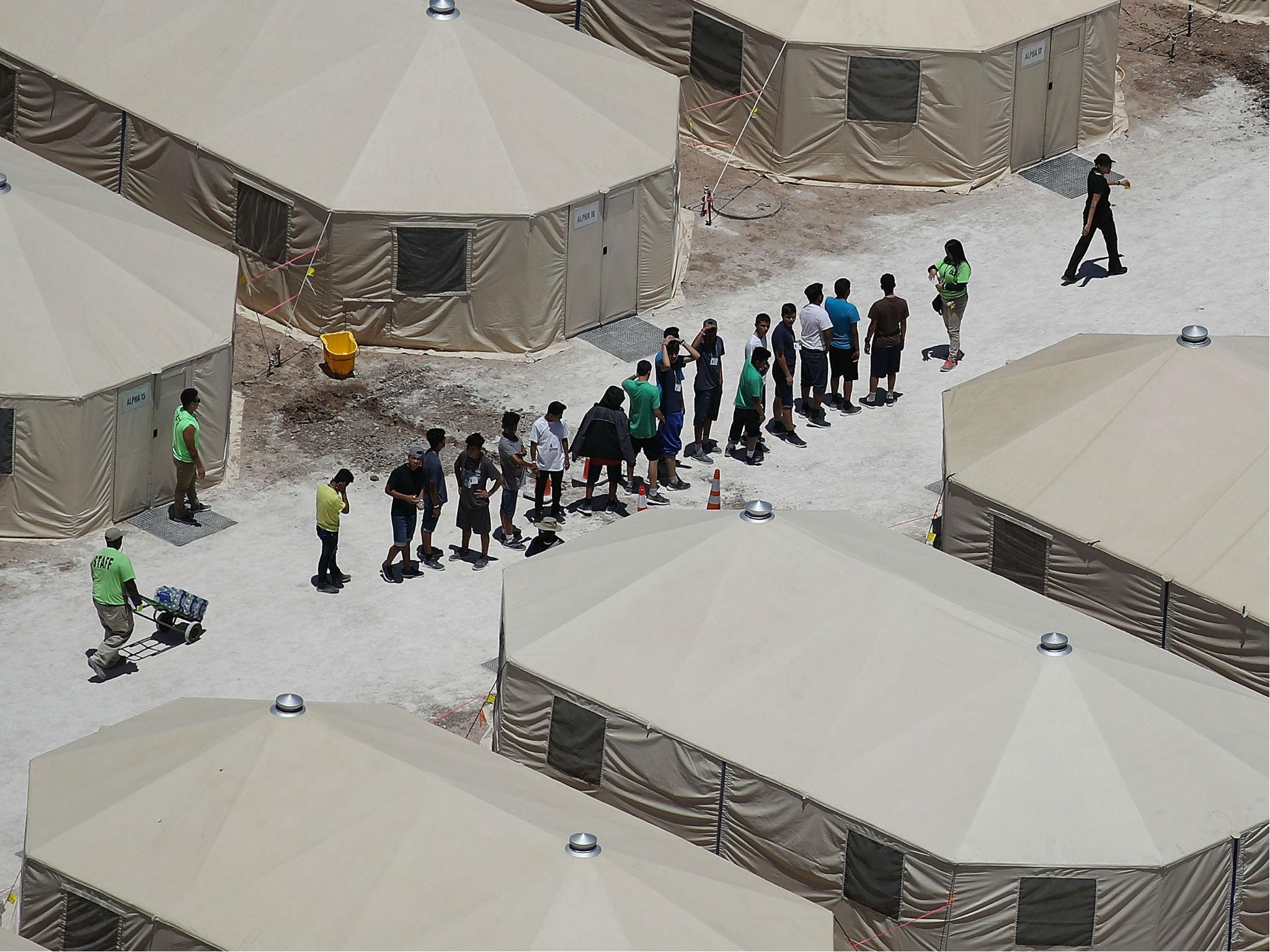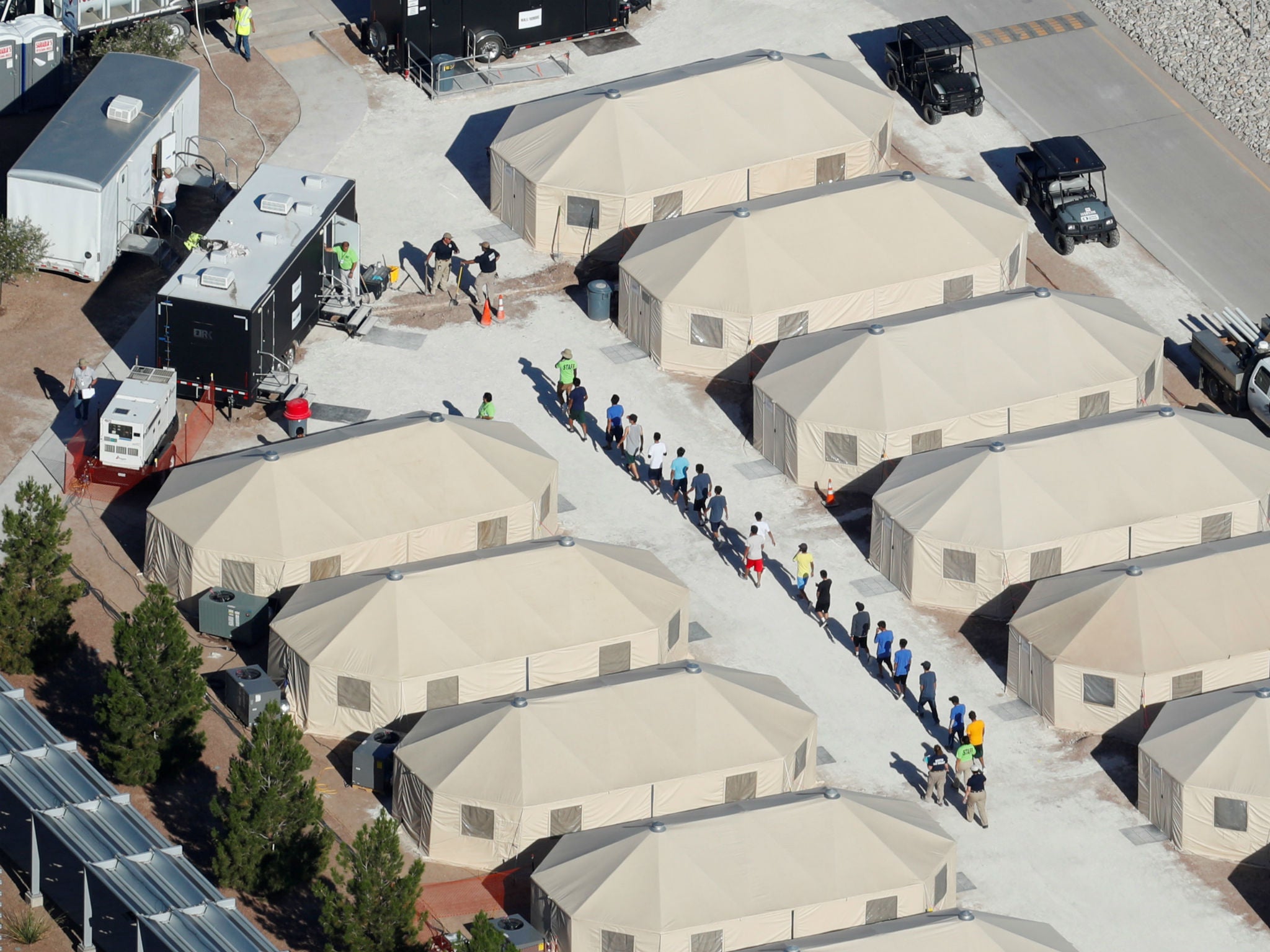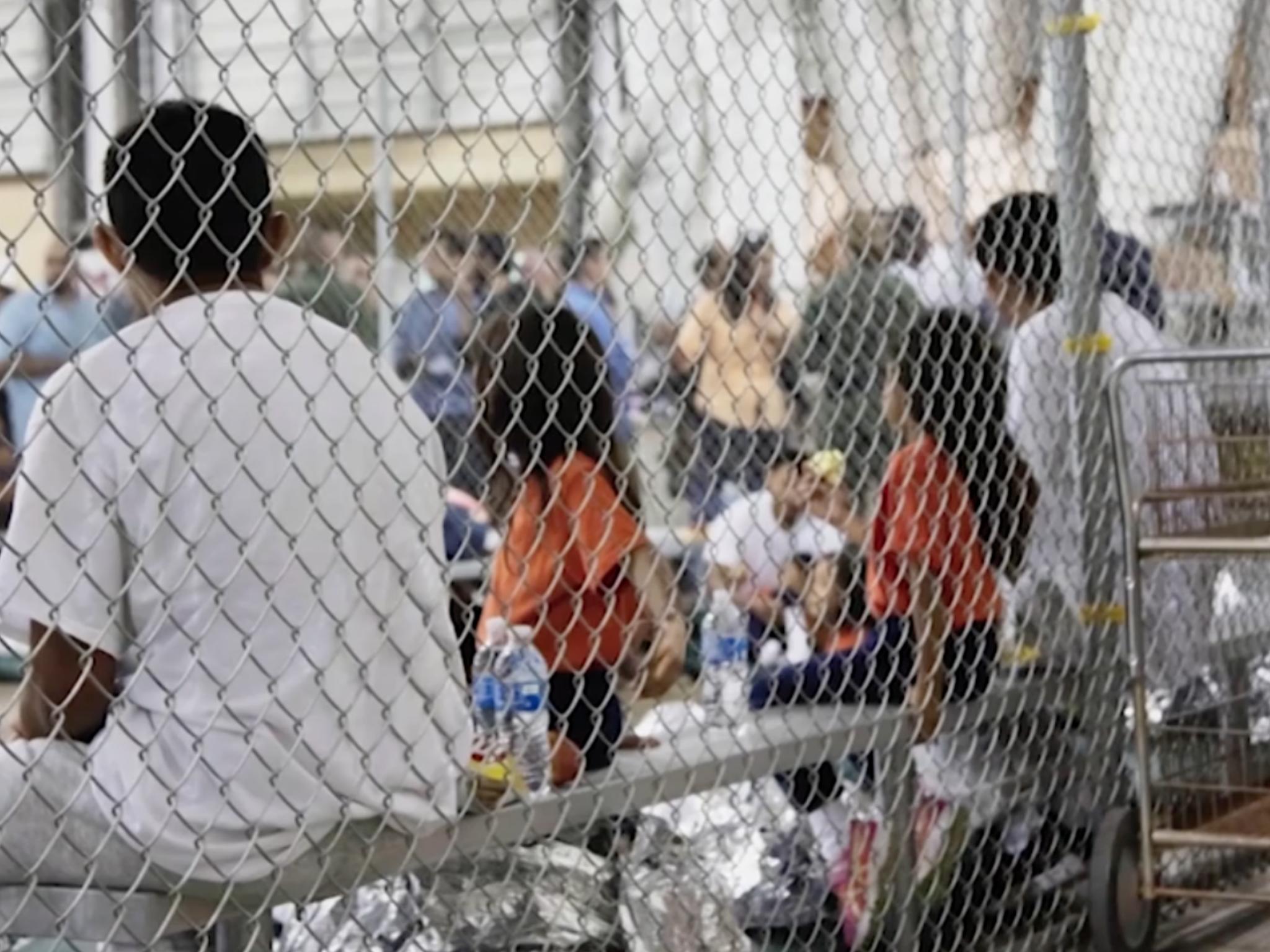More than 800 cases of abuse motivated by hate in immigrant detentions centres under Trump, report reveals
'What we've seen is an increase in the vitriol in abuses perpetrated under the Trump administration,' Freedom for Immigrants says

A new report sheds light on over 800 instances of abuse motivated by hate or bias against immigrants held in detention centres across the US since Donald Trump was elected president.
Migrants reported experiencing physical assault, verbal abuse and discrimination from officials associated with Immigration and Customs Enforcement (ICE), the Department of Homeland Security (DHS) and private prison contractors like GEO Group and CoreCivic. Freedom for Immigrants, the advocacy group behind the report, told The Independent there has been a rise in abuses throughout detention centres under Mr Trump, despite the DHS failing to properly track such incidents in recent decades.
“Abuses have always been perpetrated under every administration, however what we’ve seen is an increase in the vitriol in abuses perpetrated under the Trump administration,” said Rebecca Merton, national visitation network coordinator and independent monitor at Freedom for Immigrants. "We believe the dehumanizing language and rhetoric he and his administration uses has had an impact in which guards are encouraged to make hateful statements to the immigrants being held in detention centres."
Many reported abuses were based on discriminations against race, religion, ethnicity, sexual orientation, gender identity, disability and nationality.
In one example from the report, an immigrant held at the Otay detention facility — a CoreCivc prison in San Diego, California — said they were denied medical assistance after staff stated their dislike of “illegals [that] only come to steal jobs from white people.”

Guards at the Brooks County detention centre — a GEO prison in Falfurrias, Texas — threw an entire group of detainees’ meals onto the floor each time they were heard speaking in Spanish.
In another incident, an immigrant who identifies as transgender and was held at the Adelanto detention centre in California said they were moved to the “sex offender room,” where they became a target of violence and discrimination. “He should be used to this kind of prejudice,” one guard reportedly said while referencing the immigrant’s sexual orientation. The DHS, which was informed of this alleged abuse, closed the complaint without taking any action.

Nancy Mayer Mejia, who was held at the West County detention facility in Richmond, California, described the abuse she endured from guards in a statement sent to The Independent.
“I felt persecuted by the deputies; they treated us like cockroaches and isolated me because I help my community and I’m an open lesbian,” she said. ”I’m asking this honourable country for political asylum. Here I’ve felt like a human being whereas in my own I’ve suffered physical, mental and psychological abuse. But in detention I was made to feel like a worm, like I was worth nothing.”
Immigrant advocacy groups have published reports and filed civil rights complaints detailing widespread abuse in detention centres for years. But the DHS only reported 86 complaints of grievances related to hate crimes or abuses motivated by prejudice within immigrant detention centres over a nearly seven-year period from the fiscal year 2010 through July 19, 2017.
“They’re not adequately investigating or addressing this issue,” Ms Merton said. “A lot of people in detention centres tell us guards seem to take pleasure in humiliating them and calling them racial slurs … so many people come to our country as a beacon of hope and light while fleeing from hate and violence in other countries. To then experience that exact persecution in detention centres in the United States is unacceptable.”
The federal government provided a sanitised view of detention centres and tent cities after Mr Trump’s “zero tolerance” policy began the systematic separation of families at the US-Mexico border. Photos showed boys and teenagers in crowded cages, colouring books on top of small beds and classrooms for educational programmes.
But journalists pressed the administration for photos of where little girls and women were being held, as whistle-blowers provided audio tapes of children screaming for their parents shortly after being separated. Soon, a more realistic version of events became apparent: as the White House was planning on increasing the level of immigrants criminally prosecuted for crossing the border — including those seeking asylum — many detention facilities were already nearing maximum capacity and incapable of properly supplying resources to those already in their custody.
The apparent uptick in abuses throughout detention facilities mirrors the sharp rise in hate crimes against the Muslim community and other minorities following Mr Trump’s election in 2017. Immigrants began regularly reporting hateful rhetoric used by guards to justify their treatment while in DHS custody, according to Freedom for Immigrants.
“Shut your black ass up. You don’t deserve nothing. You belong at the back of that cage,” a warden at the West Texas detention facility in Seirra Blanca, Texas, reportedly told an immigrant.
“No one will believe baboon complaints,” an officer allegedly said in front of migrants at the Bristol County house of corrections in North Dartmouth, Massachusetts.

Other examples of mistreatment did not include physical harm or violence, but could prove to have lasting impacts on asylum-seekers and immigrants hoping to be reunited with their families in the months ahead.
One immigrant reported a recurring issue in which marriage applications from people of African nations are ignored. Multiple detainees have said they were not provided translators to read them their rights or engage with them about what happens once they’ve been sent to a facility.
An ICE official told The Independent in a statement that the agency has "zero tolerance for all forms of abuse or assault against individuals in [ICE] custody and every allegation of misconduct is taken seriously."
"ICE has religious services coordinators in each of our facilities, and we actively monitor detainee disability accommodations consistent with federal law and agency policy," the statement continued.
"Additionally, all ICE senior field officers take LGBTI sensitivity training." When asked to respond directly to numerous allegations of abuse that never appeared to have been investigated by ICE, the official responded, "I don't have anything further for you on this."
Meanwhile, it remains unclear how the federal government plans to reunite nearly 2,000 children with their parents. There does not appear to be a singular agency with records matching each immigrant with their families, and Health and Human Service rules requires immigrant parents to apply to serve as a child’s sponsor in order to take them out of federal custody. In the end, immigration experts say the process could potentially take months, even years, or prove to be completely impossible in some circumstances.
Join our commenting forum
Join thought-provoking conversations, follow other Independent readers and see their replies
Comments
Bookmark popover
Removed from bookmarks